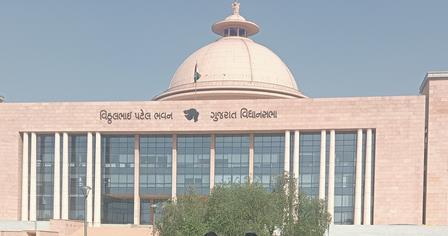
Gujarat Assembly Clears Amendment Renaming Ayurvedic And Unani Board As Council
Under the amendment, the Gujarat Board of Ayurvedic and Unani System of Medicine will now be called the Gujarat Council of Ayurvedic and Unani System of Medicine.
Health Minister Rushikesh Patel, while presenting the Bill, said the legislation aims to streamline the registration of Ayurvedic and Unani practitioners in the state and to maintain an official register of qualified doctors.
He noted that under the Gujarat Medical Practitioners Act, 1963, it is mandatory for graduates in these systems of medicine to obtain registration before practising, with unregistered practice deemed a punishable offence.
The Minister explained that the restructuring follows the National Commission for Indian Systems of Medicine (NCISM) Act, 2020, which reserves the term“Board” for four national-level regulatory bodies. To bring the state law in line with central legislation, the amendment replaces“Board” with“Council” across most sections of the 1963 Act.
The council, like its predecessor board, will function for a five-year term with 11 members - four nominated by the state government and seven elected. Patel emphasised that the change is largely technical but ensures Gujarat's regulatory framework remains consistent with national norms.
With the Bill's passage, Gujarat has officially aligned its traditional medicine governance with the new central structure, while reaffirming its commitment to strengthening Ayurvedic and Unani systems across the state. Ayurvedic practice in Gujarat has a strong presence, blending centuries-old traditions with modern healthcare.
The state is home to numerous Ayurvedic colleges, research centres, and hospitals, particularly in cities like Ahmedabad, Vadodara, and Jamnagar, where the renowned Gujarat Ayurved University is located.
Gujarat also has a thriving herbal medicine and wellness industry, with local practitioners offering treatments ranging from Panchakarma therapy to herbal remedies for chronic illnesses.
Supported by government initiatives promoting AYUSH (Ayurveda, Yoga & Naturopathy, Unani, Siddha, and Homoeopathy), Ayurveda continues to be a trusted system of healing, especially in rural areas where traditional medicine is deeply rooted in community life.

Legal Disclaimer:
MENAFN provides the
information “as is” without warranty of any kind. We do not accept
any responsibility or liability for the accuracy, content, images,
videos, licenses, completeness, legality, or reliability of the information
contained in this article. If you have any complaints or copyright
issues related to this article, kindly contact the provider above.


















Comments
No comment